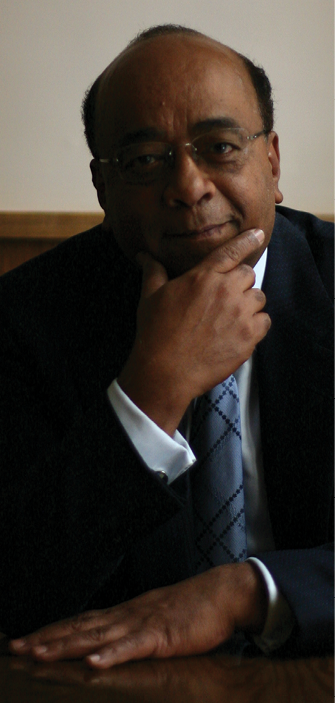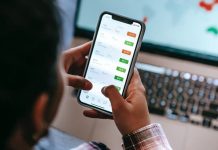 Engineer, academic, expert, innovator, entrepreneur, and philanthropist: Mohammed Ibrahim is a rich and successful man who now applies his vast resources to fight corruption and improve governance in Africa. He is on a mission and wants to make a difference.
Engineer, academic, expert, innovator, entrepreneur, and philanthropist: Mohammed Ibrahim is a rich and successful man who now applies his vast resources to fight corruption and improve governance in Africa. He is on a mission and wants to make a difference.
Dr Ibrahim made a fortune by bringing mobile telecommunications to Africa. The introduction of accessible, affordable mobile phones into a vast continent with a paucity of fixed landlines has accelerated and revolutionised development: “Telecom-on-the-go plays a key role in enabling civil society. As well as empowering people economically and socially, it also finds use as a political tool.”
Dr Ibrahim has been a global telecom expert since before the days mobile phones existed. He did not set out to become an entrepreneur but went into business out of sheer frustration with his then-employer, British Telecom (now BT), which utterly failed to recognise the significance of the emerging technology and the impact that near-universal access would have on global development.
Born in Sudan, Dr Ibrahim graduated from the Faculty of Engineering of Alexandria University in Egypt before getting a job at the national telecoms company in Khartoum. In 1974, he moved to the UK to study for a Master’s in Electrical Engineering. He pioneered research into multiplexing – employing a single radio frequency for the simultaneous transmission of multiple data streams. He also taught courses in the then obscure field of mobile telecommunications.
In 1983, he was headhunted out of the academic world and hired by BT to become technical director of the company’s newest subsidiary Cellnet (now O2). A frustrating six-year tenure followed. Dr Ibrahim’s employers failed to grasp the potential of the new mobile technology and, as a result, starved the fledging business of investment. Before long, he quit to set up his own consultancy MSI (Mobile Systems International), designing technical specifications for operators.
In these early days of mobile phone network development, MSI was able to save operators big money by using a minimum amount of hardware to produce reliable, interference-free coverage. Business boomed and within a decade MSI boasted no less than 17 international subsidiaries and over 800 employees. In 2000, Dr Ibrahim sold MSI to Marconi for $916 million dollars.
However, Dr Ibrahim retained Celtel. This MSI subsidiary was an operator rather than a consultancy. At the time, mobile telecom companies were scrambling to acquire licences. As they did, governments were busily ratcheting up fees. There remained but one place where licences could be obtained for free: Africa.
Even so, most operators were reluctant to venture that far south: “Africa was perceived – and still is to some extent – as a continent that is not particularly business-friendly. But I don’t share that view at all.”
Dr Ibrahim set his sights on bringing mobile communications to Africa. He was also determined to shape his own business environment and doggedly refused to pay any bribes. The company announced publically that none of its officers or representatives was authorised to spend more than $30,000 without the signatures of the entire board. Dr Ibrahim recalls that once his corporate no-bribe policy became widely known, Celtel was never asked to make irregular payments.
Business boomed: the uptake of mobile phones throughout Africa grew tenfold between 1999 and 2004 to 75 million users. Mobile telecom transformed people’s lives by allowing for easy access to information previously unavailable. Mass communications also gave rise to new business opportunities.
In 2004, Dr Ibrahim sold Celtel to Kuwait’s Mobile Telecommunications Company (MTC) for around $3.3 billion. The staff shared $500m in pay-outs. As a result, about a hundred people became instant millionaires. Dr Ibrahim then turned his attention to a project on improving standards of governance in Africa.
“After the sale of Celtel, I really wanted to give the money back to society. I had a number of choices – to go and buy masses of blankets and baby milk and head for Darfur or Congo. That would have been very nice actually, but it’s just like an aspirin: it doesn’t deal with the cause of the problem.”
He tasked his daughter Hadeel Ibrahim, a graduate from Bristol University with some experience working in private equity, with the setting up the Mo Ibrahim Foundation. The entity was conceived with but a single objective in mind: to put governance at the centre of the ongoing debate on African development.
The foundation’s credo is that governance and leadership lie at the heart of any tangible improvement in the quality of life of Africans. The organisation launched a number of initiatives. The Ibrahim Index of African Governance provides a statistical assessment of the quality of governance in each African country. It ranks governments by their ability to ensure the rule of law, to sustain economic development, and to protect human rights. The index is updated and published annually.
The Ibrahim Prize rewards excellence in African leadership. A sum of five million dollars and an annual stipend is awarded annually to a democratically elected former executive head of state or government by an independent prize committee. However, if no suitable winner can be found, the prize is not awarded. In 2014, the prize was awarded to Namibia’s President Hifikepunye Pohamba.
The Ibrahim Forum is an annual high-level discussion platform tackling issues of critical importance to Africa. The Ibrahim Leadership Fellowships form a selective programme designed to mentor future leaders.
Dr Ibrahim’s business career has made an immense contribution to furthering private enterprise in Africa. He is now redirecting both his energy and resources to handing Africans the levers they need in order to put pressure on the continent’s leaders to improve standards of governance and accountability.






























